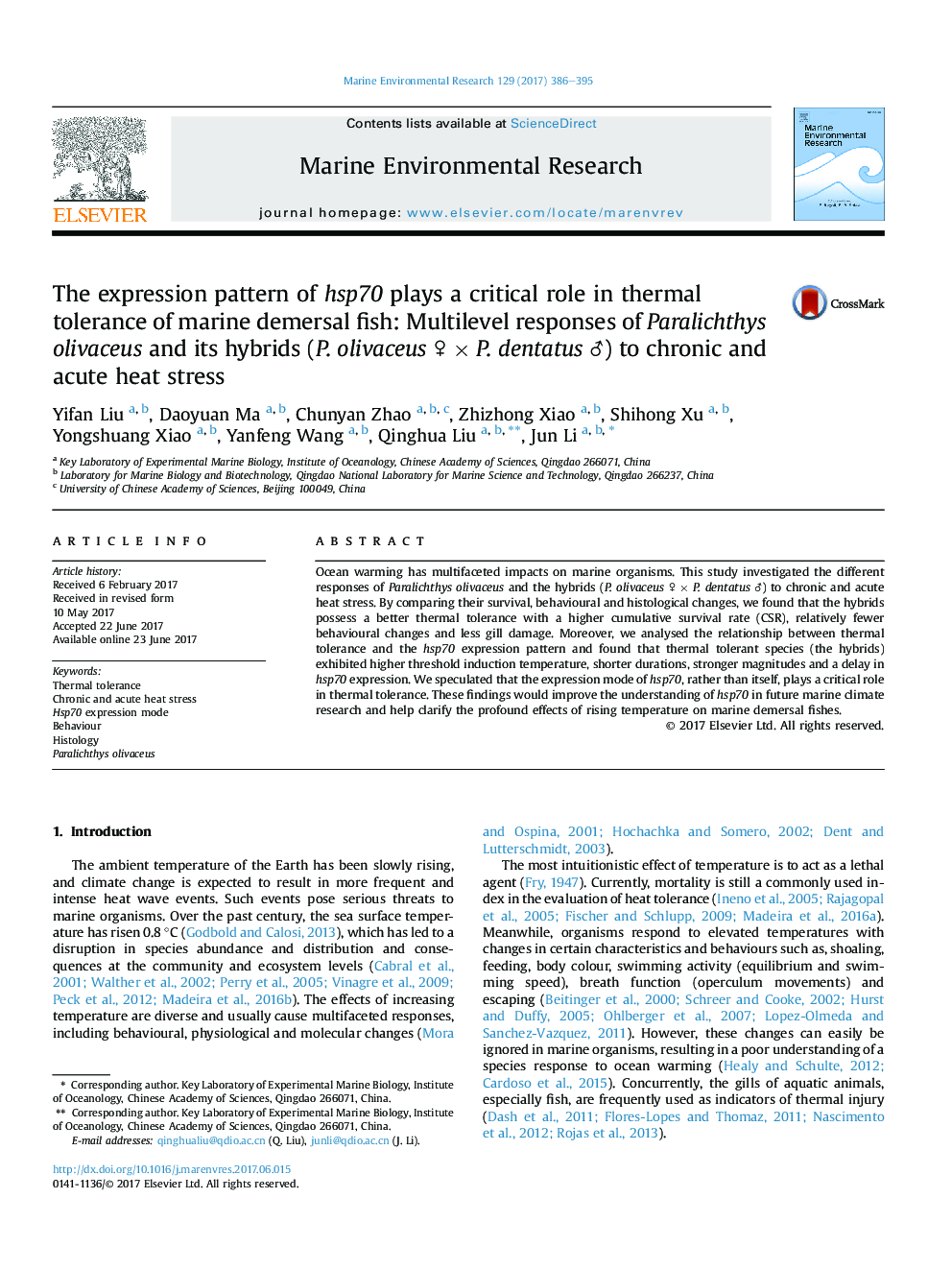| Article ID | Journal | Published Year | Pages | File Type |
|---|---|---|---|---|
| 5766219 | Marine Environmental Research | 2017 | 10 Pages |
â¢Chronic and acute heat shocks were tested both in P. olivaceus and the hybrids.â¢Survival, behavioral and histological results showed the hybrids possesses a better thermal tolerance.â¢Relationship between hsp70 expression mode and thermal tolerance was studied.â¢Thermal tolerant species (the hybrids) exhibited higher threshold induction temperature, shorter durations, stronger magnitudes and a delay in hsp70 expression.
Ocean warming has multifaceted impacts on marine organisms. This study investigated the different responses of Paralichthys olivaceus and the hybrids (P. olivaceus â Ã P. dentatus â) to chronic and acute heat stress. By comparing their survival, behavioural and histological changes, we found that the hybrids possess a better thermal tolerance with a higher cumulative survival rate (CSR), relatively fewer behavioural changes and less gill damage. Moreover, we analysed the relationship between thermal tolerance and the hsp70 expression pattern and found that thermal tolerant species (the hybrids) exhibited higher threshold induction temperature, shorter durations, stronger magnitudes and a delay in hsp70 expression. We speculated that the expression mode of hsp70, rather than itself, plays a critical role in thermal tolerance. These findings would improve the understanding of hsp70 in future marine climate research and help clarify the profound effects of rising temperature on marine demersal fishes.
